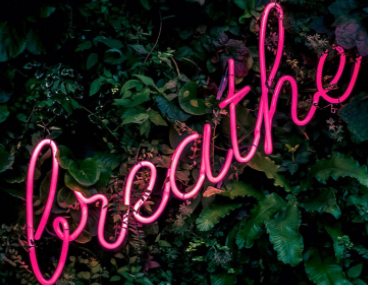How to Destress from 2020

Can you remember your goals? Well, with the tips provided below you will be able to reflect, collect, and establish a new esteem that will motivate you to finish 2020 in your best way possible.
November 4, 2020
How To Destress From 2020
We can all agree that the year 2020 hasn’t been the year we imagined, and since the year is coming to an end, it is important that we finish 2020 strongly. Our own stability may seem impossible to focus on with the coronavirus, virtual school, the presidential election, and other major events that had occurred in 2020 dominating our minds. This is why we need to take a step back, look at ourselves in the mirror, and ask how we can personally grow and improve our mental health.
Eat + Exercise = Effectiveness: This may seem like an obvious one, but looking after your physical health is one of the gateways towards pursuing satisfaction. The consumption of some healthy foods can reduce the levels of stress hormones, such as adrenaline and cortisol, and lower blood pressure. Complex carbohydrates, vitamin D, green foods, fish, tea, nuts, along with many others help contribute to stress management. Through the consumption of these superfoods, serotonin levels increase thus regulating your mood, which unlocks your focus and motivation. With this in mind, you should seek out alternatives to what you normally consume to make the initiation of your healthy food journey much easier. It is not necessary, but keeping a food journal could be beneficial since it will help you set aside time to prepare and try out new foods that are abundant with essential nutrients. Exercise, whether it is taking a short walk around your neighborhood or having a full-blown cardio session, can reduce stress by producing endorphins which can improve sleep ability, concentration, and reduce fatigue in the long run. Even though the recommended amount of exercise is an hour, the minimum amount of exercise performed that will immediately give results is ten minutes per day, at least on my account. Since the beginning of quarantine, I began to exercise at least twenty minutes a day and I felt myself become more concentrated on the work that I needed to do. I also could feel my mood change and I began to view everything around me in an optimistic light. Once the new school year began, I shifted my exercise plan to ten minutes and continued to witness the same results and I started to look forward to exercising every day after school. Obviously, it isn’t simple at first, but once you begin exercising you start to realize that taking ten minutes out of your day is more beneficial than complex to your tight schedule.
Read Some More: Nothing is better than laying down after a long day for a blissful sleep, but for some days it is harder to sleep than ever. The reasoning behind such predicament could be because of the intense use of technology we use during the day. Devices, such as smartphones, tablets, and laptops, tend to delay our circadian rhythms through their bright lights, thus hindering the release of melatonin, a sleep-inducing hormone. Even if you don’t have any trouble sleeping, reading novels before going to bed can help you since they will further relax your muscles and slow down your breathing, thus calming yourself down. According to a study by SleepJunkie, those who read for around an hour, for at least once a week, slept for an hour and thirty minutes more than those who did not. Even reading only a few pages can improve your sleep. I personally had no problems with sleep when I started reading a selected book before bed, but I could sense that I was sleeping heavier and longer, thus feeling relaxed when I woke up. Reading also gives you the opportunity to turn away from the tensions of the media and the outside world as well as a chance to have some personal time. So go order a book, or borrow one from the library (make sure to sanitize it well and be safe around others), of your choice and enjoy the calm excitement of flipping pages.
Just Breathe: This one is pretty self-explanatory. All you have to do is to remember to take some time for yourself. Take a break from all the hectic fever in your life and appreciate the moment you’re in. Practice some breathing exercises if you feel the stress entering your head. Remember that you are the moment, you are the atmosphere, and you are here.
It will take time to adjust to these new habits. You will mess up at times. I know I have. Just be patient and remember that these tips will only help you. If you feel that nothing has changed, or you want to go beyond in decreasing your stress, try talking to someone you feel safe with or research on other ways to improve your mental health.
Sources
Breus, Dr. Michael. “How Does Reading Before Bed Affect My Sleep?” Your Guide to Better Sleep, 15 Sept. 2019, thesleepdoctor.com/2019/09/15/how-does-reading-before-bed-affect-my-sleep/.
“How and Why Using Electronic Devices at Night Can Interfere With Sleep.” Sleep Foundation, 28 July 2020, www.sleepfoundation.org/articles/why-electronics-may-stimulate-you-bed.
“Physical Activity Reduces Stress.” Anxiety and Depression Association of America, ADAA, adaa.org/understanding-anxiety/related-illnesses/other-related-conditions/stress/physical-activity-reduces-st.
Zelman, Kathleen M. “Diet for Stress Management: Carbs, Nuts, and Other Stress-Relief Foods.” WebMD, WebMD, 5 Nov. 2019, www.webmd.com/diet/ss/slideshow-diet-for-stress-management.


